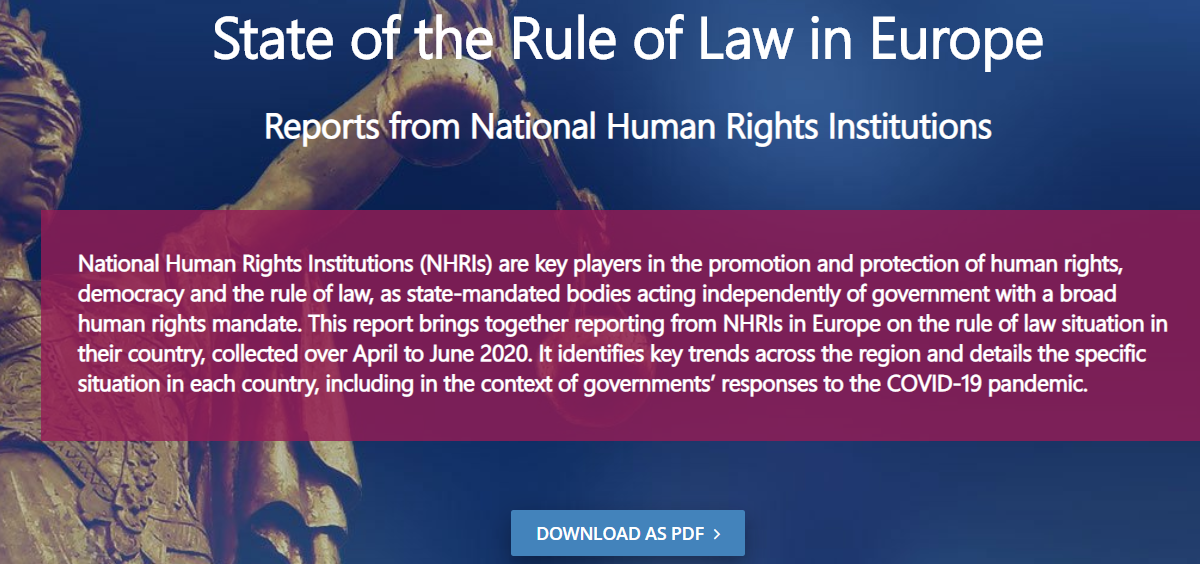ENNHRI has launched a report on the state of the rule of law in 51 European countries based on contributions from National Human Rights Institutions (NHRIs). The report provides an overview of trends and challenges in the region and underlines the importance of strong and independent NHRIs in helping drive progress on human rights and the rule of law in Europe.
Human rights and the rule of law are interlinked and mutually reinforcing principles. Given this, NHRIs, as independent, state-mandated bodies with a broad human rights mandate, are key players in advancing the rule of law in their jurisdictions.
This report gathers contributions from European NHRIs and ENNHRI member institutions in 40 countries, whose contributions reflect their perspectives on the situation in their country, based on their human rights monitoring and reporting functions. The report also includes information on 11 additional European countries.
It gives an overview of trends and challenges related to:
- Independence and effectiveness of NHRIs
- Human rights defenders and civil society space0
- Democratic checks and balances, Justice systems
- Media pluralism
- Corruption
- Responses to the COVID-19 outbreak
The findings highlight the importance of a regular and comprehensive monitoring of the rule of law environment and of prioritising the establishment and strengthening of fully-independent and effective NHRIs, which also serve as an indicator of the respect for the rule of law and Sustainable Development Goal 16.
In May, ENNHRI contributed to the EU’s first annual rule of law monitoring cycle with a report focusing on EU Member States. By engaging in European rule of law monitoring mechanisms, NHRIs can help policy makers reach a more comprehensive and informed assessment of the situation in each state. This, in turn, can lead to stronger impacts of follow up action to drive progress in the national and European rule of law and human rights environment. NHRIs will continue to act on this at a national level and engage with relevant international mechanisms.
This report can be used by a variety of stakeholders, at the national, regional and international levels to help advance rule of law and human rights across Europe.
Source: ENNHRI


